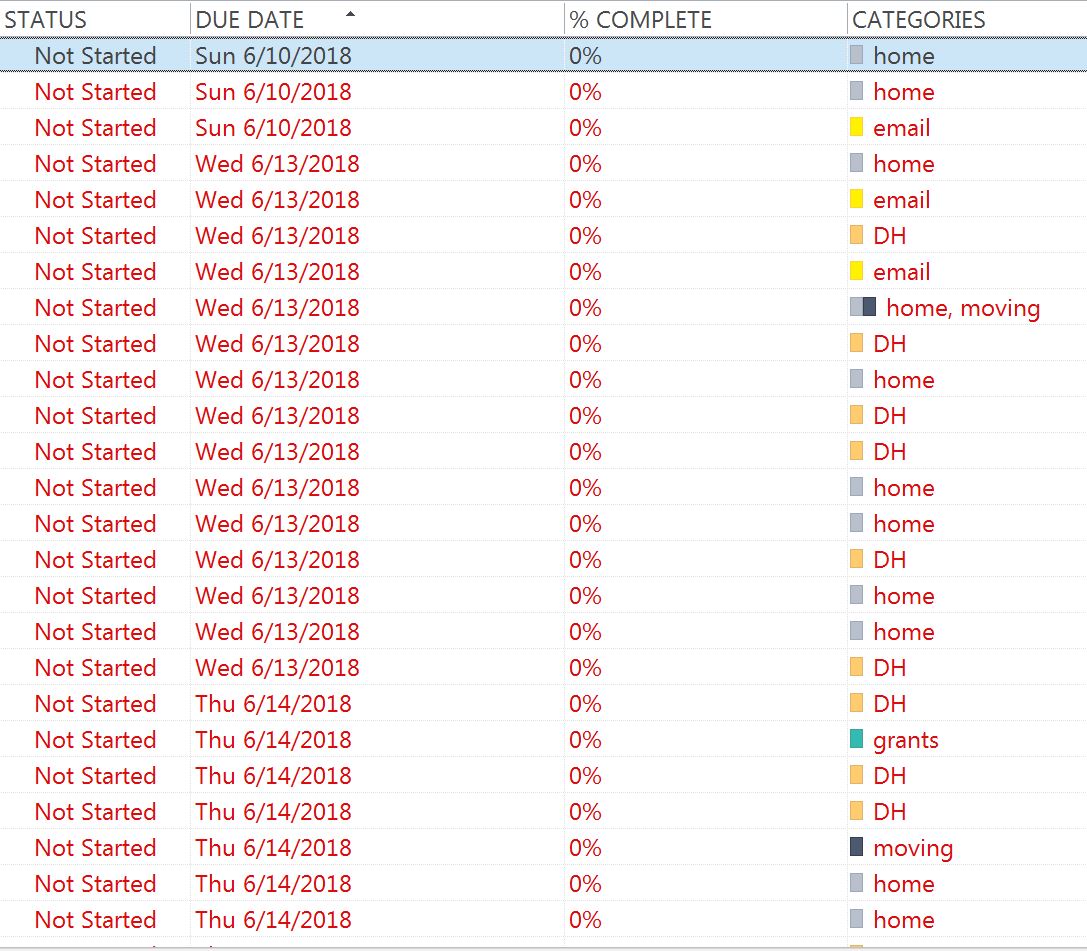After I accepted the position of Department Head at UConn, I was talking to a colleague who knows me pretty well – he was Professor-in-Charge (PIC) of the Undergraduate Program while I was PIC of the Graduate Program at Penn State. And leading up to that, we had been colleagues for about 15 years. His biggest advice to me was not to go into the new job/department and Eva them (he didn’t put it in those words). That is, he advised me to slow roll my tasks – spend time in the first year listening to people, making lists of things I wanted to do, and making a 5-year plan to get them done, and do only a fraction (1/5 perhaps?) of those items in Year 1. He also told me that I had accomplished more in my two years as Grad PIC than most before me had accomplished in their full 5-year terms.
The latter part surprised me – I told him that in fact, I was leaving many things unfinished and felt that there were so many things I wanted to accomplish as Grad PIC that were not yet done.
And then he explained to me the numerator/denominator problem – which, honestly, I don’t know if he made up or had learned elsewhere. But it resonated with me.
The idea is that we often think of our productivity based on the denominator – all of the things we want to get done, whether completed or not. But when others consider our productivity, they usually focus on the numerator – all of the things we actually have accomplished. So, if we could focus more on our own accomplishments, rather than on what we want to accomplish but haven’t yet, we would feel better about ourselves.
Something similar happened after my first year as department head, when my new colleagues said they were appreciative of all I had completed in my first year, whereas I honestly felt I had barely touched the tip of the iceberg. Again, numerator/denominator.
I think that part of the problem is the way we approach tasks. For instance, I use outlook to organize my tasks. Once I complete a task, I have the satisfaction of marking it done in Outlook. But, I don’t then get to look at it my completed tasks regularly. Instead, what I see on a daily basis is all of the tasks I have to do – tasks, for instance, where I didn’t make the deadline so I have to change the deadline to a future date, or tasks that are upcoming. Here’s mine (I’ve removed the specific items):
I’ve thought about this issue recently in my return to blogging, because I have been trying to blog all of my research group’s published papers in the past 3 years (2016 – current). Day to day, I think about the R&R I still have to finish, the former student’s manuscript that’s in my inbox to read, or the paper idea I haven’t made much progress on. But blogging about recently published papers has been a great reminder of all of the publications in my numerator – I feel as though I’ve written many blog posts on papers, but I’m still working on 2016 papers. A quick skimming of my CV tells me that we have 17 published or in press papers and chapters since 2016. I’m pretty satisfied with that numerator, even if there is a lot remaining in the denominator and in my inbox.
I am not sure the most effective way to remind ourselves of our productivity, or all of the things we HAVE accomplished recently. As I mentioned, looking at my CV recently helped me. It also helps me when I have to write an annual report to our Dean about the department’s accomplishments and what I did over the past year. But those big ticket items also fail to capture all of the day-to-day minutiae we accomplish. So, I recommend you figure out a way to remind yourself of your numerator regularly. Yes, we have to focus on the tasks to come, but it can be helpful to remind ourselves of all we have done already.
“The Numerator/Denominator Problem of Productivity first appeared on Eva Lefkowitz’s blog on July 5, 2018.”



 RSS Feed
RSS Feed
